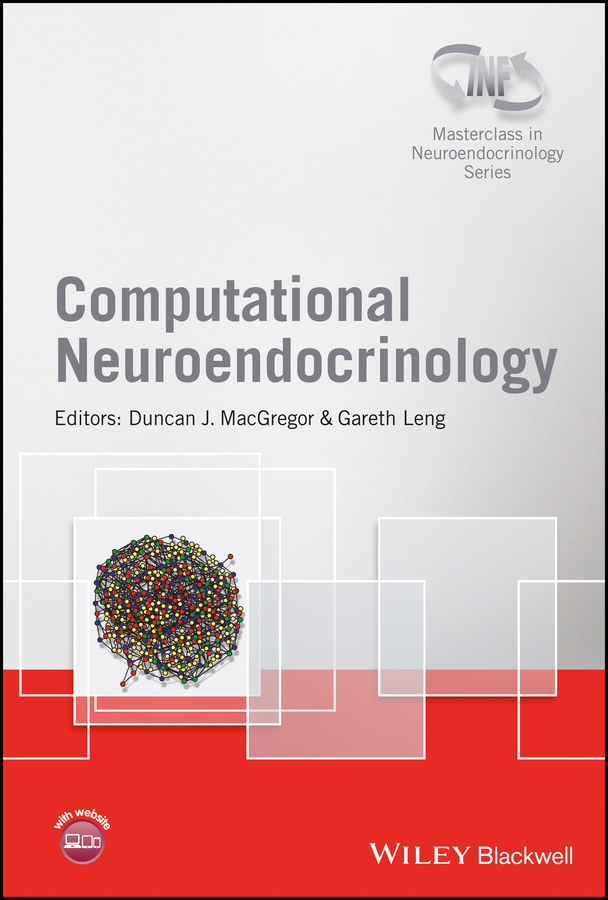Электронная книга: Gareth Leng «Computational Neuroendocrinology»

|
Neuroendocrinology with its well defined functions, inputs, and outputs, is one of the most fertile grounds for computational modeling in neuroscience. But modeling is often seen as something of a dark art. This book aims to display the power of modeling approaches in neuroendocrinology, and to showcase its potential for understanding these complex systems. A recurring theme in neuroendocrinology is rhythms. How are rhythms generated, and what purpose do they serve? Are these two questions inextricably intertwined? This book is written for innocents, presuming no math beyond high school or computing beyond calculators. It seeks to lead the curious into the thinking of the modeler, providing the tools to the reader to understand models, and even develop their own, giving life to paper diagrams. The diverse chapters, from ion channels to networks, systems, and hormonal rhythms, each tell the story of a model serving to join the hard won dots of experimentation, mapping a new understanding, and revealing hidden knowledge.• Written by a team of internationally renowned researchers • Both print and enhanced e-book versions are available • Illustrated in full colour throughout This is the fourth volume in a new Series ‘Masterclass in Neuroendocrinology’ , a co- publication between Wiley and the INF (International Neuroendocrine Federation) that aims to illustrate highest standards and encourage the use of the latest technologies in basic and clinical research and hopes to provide inspiration for further exploration into the exciting field of neuroendocrinology. Series Editors: John A. Russell, University of Edinburgh, UK and William E. Armstrong, The University of Tennessee, USA • Written by a team of internationally renowned researchers • Both print and enhanced e-book versions are available • Illustrated in full colour throughout This is the fourth volume in a new Series ‘Masterclass inNeuroendocrinology’ , a co- publication between Wiley and the INF (International Neuroendocrine Federation) that aims to illustrate highest standards and encourage the use of the latest technologies in basic and clinical research and hopes to provide inspiration for further exploration into the exciting field of neuroendocrinology. Series Editors: John A. Russell, University of Edinburgh, UK and William E. Armstrong, The University of Tennessee, USA Издательство: "John Wiley&Sons Limited"
ISBN: 9781119159445 электронная книга Купить за 10038.89 руб и скачать на Litres |
Другие книги схожей тематики:
| Автор | Книга | Описание | Год | Цена | Тип книги |
|---|
См. также в других словарях:
Neuroendocrinology — is the study of the extensive interactions between the nervous system and the endocrine system, including the biological features of the cells that participate, and how they functionally communicate. Neuroendocrinology arose from the recognition… … Wikipedia
Computational neuroscience — is the study of brain function in terms of the information processing properties of the structures that make up the nervous system.[1] It is an interdisciplinary science that links the diverse fields of neuroscience, cognitive science and… … Wikipedia
Neuroethology — Echolocation in bats is one model system in neuroethology Neuroethology (from Greek νεῦρον neuron nerve and ἦθος ethos habit or custom ) … Wikipedia
Neuroscience — For the journal, see Neuroscience (journal). Drawing by Santiago Ramón y Cajal (1899) of neurons in the pigeon cerebellum Neuroscience is the scientific study of the nervous system.[1] Traditionally, neuroscience has been se … Wikipedia
Neuroinformatics — is a research field concerned with the organization of neuroscience data by the application of computational models and analytical tools. These areas of research are important for the integration and analysis of increasingly large volume, high… … Wikipedia
Cognitive neuroscience — Psychology … Wikipedia
